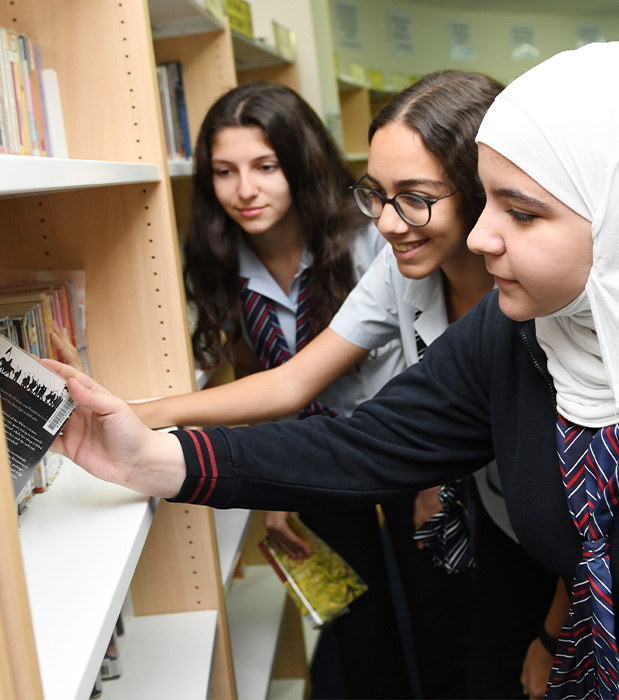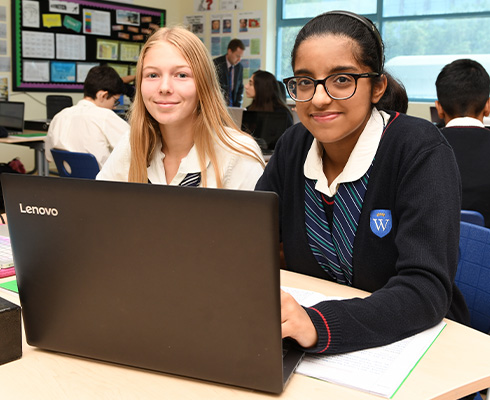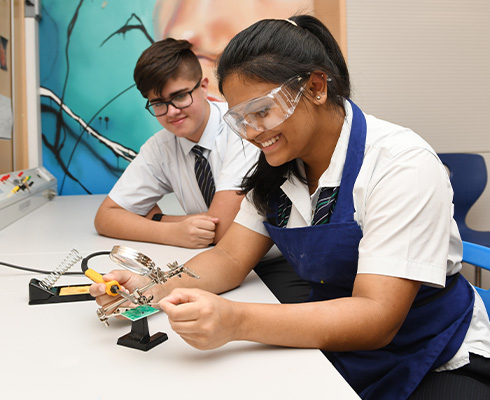
The Core Elements
The Diploma Programme has the strength of a traditional pre-university curriculum but with three important additional features known as the Core elements. These elements distinguishes the IBDP from all other educational programmes.
Theory of Knowledge (TOK)
Theory of Knowledge is central to the philosophy of the IB Diploma Programme. It offers students the opportunity to reflect critically on diverse ways of knowing and to consider the role of knowledge in their culture and the culture of others.
It is not surprising then that the TOK course is composed mainly of questions. For example, students are encouraged to ask not “What do we know?” but “How do we know?” and “How can it be verified?” Here are some other examples of questions TOK students might explore:
What is knowledge? How does it differ from belief?
Is a mathematical statement true only if it has been proved?
What is the nature of language? Is it possible to think without language?
What is good art?
The purpose of those questions is to encourage critical thinking, stimulate discussion and to encourage students to realise that their way of seeing the world is not the only way, or necessarily the right one.
Creativity, Action, Service (CAS)
Through this programme, students learn about themselves, about others and about the wider community by doing and they also learn to reflect on the knowledge they acquire this way. Uniquely, CAS insists that students truly extend themselves into domains where they have never ventured before. The CAS programme is designed to complement the rigours of the academic programme and universities attach great importance to participation as it is in this area that students can truly demonstrate their personal qualities and drive. Students must complete 50 hours in each of the following three areas:
Creativity activities are ideally imaginative and inspiring and can cover active participation in a wide range of artistic endeavours.
Action activities can involve team sports, individual sports, expeditions, camping trips or participation in activities requiring physical exertion.
Service activities are predominantly defined as service to a community and should focus on doing things with others, not just for others, and should focus on developing real commitment to others.
The Extended Essay (EE)
Each student selects and investigates a topic of special interest about which they write a 4000 word extended essay. Emphasis is placed on the research process, on personal engagement in the exploration of the topic and on the development and the communication of ideas. Students, teachers and universities attach great importance to this task because it provides practical preparation for the kind of undergraduate research required in higher education. Students will be supported throughout the research and writing period with advice and guidance from a supervisor.





